June 13, 2025 | 00:55 GMT +7
June 13, 2025 | 00:55 GMT +7
Hotline: 0913.378.918
June 13, 2025 | 00:55 GMT +7
Hotline: 0913.378.918
From December 30, 2024, Vietnam's agricultural products, including wooden furniture, imported into the European (EU) market will not be accepted if they cannot be proven for their irrelevance to deforestation. Therefore, most businesses operating in the wood processing industry in Vietnam are currently very concerned about the EU's EUDR regulation.
"EUDR is the EU's regulation on products that do not contribute to deforestation; this is the EU's turning point in reducing deforestation and forest degradation. According to the EU, deforestation means the destruction of natural forests to clear land for agricultural production, while forest degradation means the destruction of natural forests to plant production forests. Among the agricultural products required to comply with the EUDR regulation is wooden furniture. Particularly for the export wood processing industry, the EU adds many requirements, such as that all wood products must be made from legal raw materials that do not contribute to deforestation and forest degradation," explained Ms. Vu Thi Que Anh, representative of the Forest Stewardship Council in Vietnam.
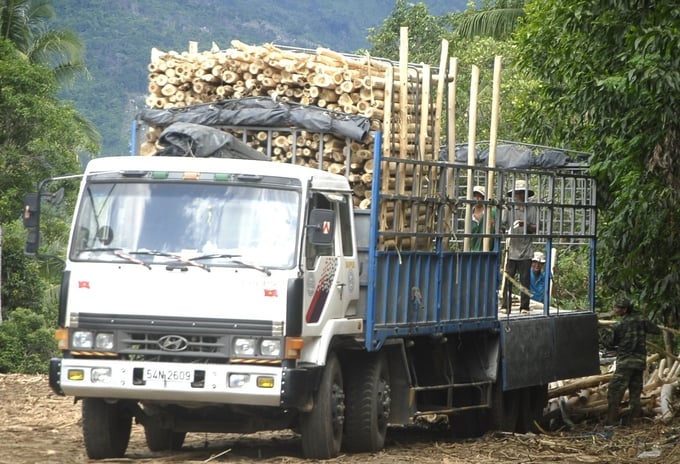
Wood products must be made from legal raw materials that do not contribute to deforestation and forest degradation. Photo: V.D.T.
According to Ms. Vu Thi Que Anh, EUDR's core requirement is that commodities on the catalog must be of legal origin and exploited from localities without deforestation or forest degradation. The product that is produced on the land converted after December 31, 2020, will not be accepted by the EU market. Before goods are exported to European markets, the EU will carefully inspect whether these goods are related to deforestation or activities that degrade forests.
Accordingly, the EU will require the traceability of raw wood in terms of geographical location. Specifically, raw wood must have the location of the harvesting area; the EU will inspect whether the raw wood harvesting area has an FSC certification or is an area that violates deforestation and causes forest degradation. If raw wood is harvested in an area of less than 4 ha, it will be traced to the point, but if the harvesting area is over 4 ha, raw wood will be traced to the region. EUDR also stipulates that appraisal will take place before the business places an order or before goods are exported. Businesses must send relevant information after appraisal to the EU's authorities.
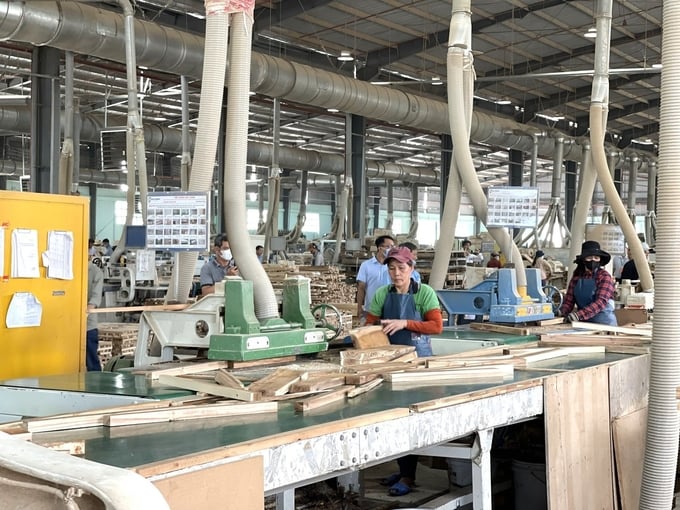
Before goods are exported to the EU market, these goods will be carefully inspected to see whether they are related to deforestation or forest degradation. Photo: V.D.T.
"The EUDR regulation is applied to prevent uncontrolled or illegal wood and wood products from entering the European market. From June 2023 to the end of December 2024, it is time for Vietnamese businesses to prepare and comply with the EUDR regulation," said Ms. Vu Thi Que Anh.
According to Mr. Ngo Si Hoai, Vice Chairman of the Vietnam Timber and Forest Products Association, wood, coffee, and rubber are three commodities directly affected by the EUDR regulation, in which the wood industry has more advantages thanks to the implementation of the VPA/FLEGT Agreement, a Vietnam-EU trade agreement aiming to create a legal framework for Vietnam's wood and wood products exported to the EU market and FSC certification.
Thus, Vietnam's wood industry sees the EUDR regulation as more of an opportunity than a challenge. If done well, Vietnam's wood products entering the European market will highly increase. Meanwhile, this market still has many gaps for Vietnam's wood industry because Vietnamese wooden furniture imported into this market currently accounts for only 1.9% of the EU's total wood product import value. Furthermore, many countries around Vietnam are now opposing EUDR. If Vietnam complies, goods will have wide access to the EU market.
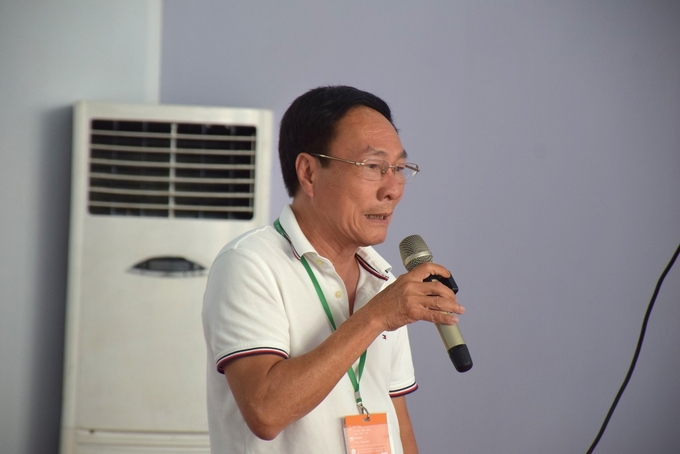
According to Mr. Ngo Si Hoai, Vietnam's wood industry sees the EUDR regulation as more of an opportunity than a challenge. Photo: V.D.T.
However, according to Mr. Hoai, there are still many problems for which businesses need specific instructions to comply with the EUDR regulation. The Ministry of Agriculture and Rural Development is actively negotiating with the EU to remove the problems. The Department of Forestry is preparing to have a soft map of Vietnam's forests before December 30, 2020, to serve as a reference basis.
Mr. Hoai pointed out the difficulties that Vietnam's wood industry faces when implementing the EUDR regulation, which include providing information on the geographical coordinates of forests where raw rubber wood is exploited for processing into products exported to the EU market. The most worrying thing is that forest owners with small areas, even just a few thousand square meters, do not know how to provide information.
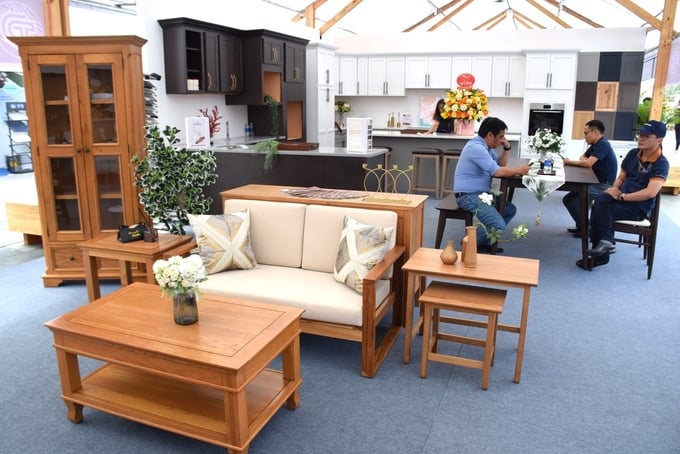
EUDR's core requirement is that commodities in the catalog must be of legal origin. Photo: V.D.T.
“Another difficulty is that Vietnam imports raw wood from 100 countries. Raw materials for pellet production are mainly sawdust from wood processing activities, including sawdust from domestically planted forest timber such as acacia, eucalyptus, and rubber and sawdust from wood imported from America and Africa. So an issue set out is how Vietnamese businesses can get geographical coordinates of the raw material areas in so many places when exporting pellets. Vietnam has also asked the EU about this issue, and they have also promised to resolve it," said Mr. Ngo Si Hoai, Vice Chairman of the Vietnam Timber and Forest Products Association.
“Our business has achieved an FSC certification since 2016, which is also advantageous for us to continue implementing the EUDR regulation. However, this is a new regulation, so I hope that the Vietnam Timber and Forest Products Association, as well as the Binh Dinh Timber and Forest Products Association, will have specific steps to support wood businesses in Binh Dinh in the early stages of implementing the EUDR regulation," said Mr. Nguyen Van Cong, Director of Gia Han Furniture Co., Ltd. (Phu Cat district, Binh Dinh).
Translated by Thu Huyen

(VAN) Mr. Tran Quang Bao, General Director of the Forestry and Forest Protection Department, met and worked with the International Wood Products Association to promote cooperation in the field of timber trade.

(VAN) China's outbound shipments of rare earths in May jumped 23% on the month to their highest in a year, though Beijing's export curbs on some of the critical minerals halted some overseas sales.

(VAN) To sustain capital flow, administrative reform alone is not enough; what farmers truly need is an ecosystem where both government and businesses grow together in support.
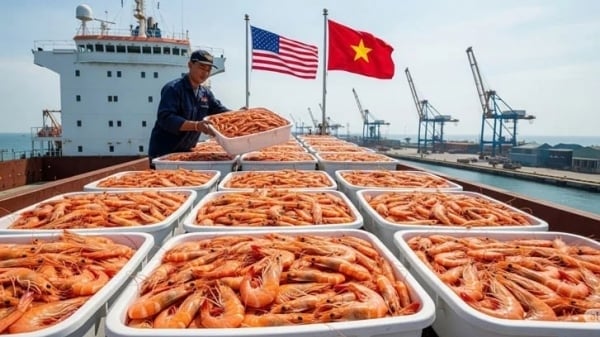
(VAN) Vietnam and the United States are proactively working together, each in their own way, to ensure that every container of agricultural goods carries not just products, but also long-term trust and value.
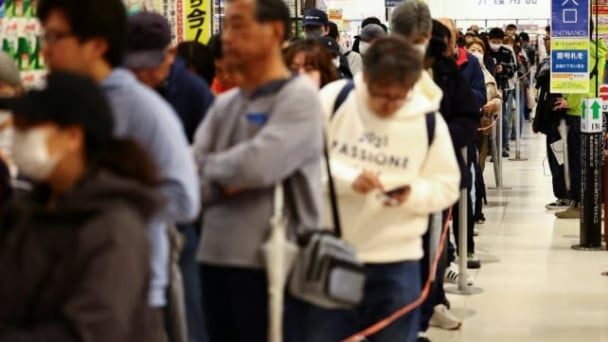
(VAN) Stores have started selling rice from the government’s stockpile to feed demand for the staple.
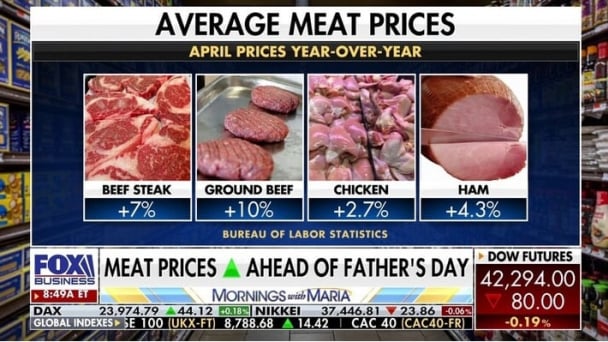
(VAN) Omaha Steaks CEO says rebuilding cattle herds will take about a year to ease price pressures.

(VAN) Reciprocal tariffs and recent NOAA rulings are presenting substantial obstacles for Vietnamese tuna exporters in the U.S. market. As a result, the industry is actively seeking alternative export destinations.